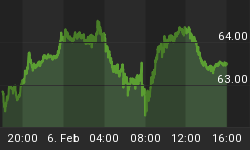
Month January is named after the Roman god Janus. He is depicted as having two faces. One looking back at the fading last hours of the old year, the other trying to discern the new year. Similarly I contemplate the final two trading days of the old 2010 year and the opening of the first five trading days of the 2011 year. This period is sometimes marked by swirls of positioning often referred to as "window dressing" in order to make portfolios appear as attractive as possible. This buying and selling activity by mutual funds and institutions while it occurs every month may have special significance during this year end period. Accounting considerations both for profits and losses can be favorable for my readers. Indeed, the last three hours of the final trading day (12-31-10) may permit us to enter a low bid on those stocks that one may have thought had "gotten away". You may be pleasantly surprised to find that your price was hit by some fund cashing in on a good year or conversely posting a loss as the case may be.
An analogous tactic may possibly work during the first five trading days of January known as the "January Effect." Buying or selling then may be profitable and may give us a glimpse of what may be occurring in the year ahead.
It is important in cheerful times as U.S. equity markets hit new two year highs with many sitting on large gains to not forget that what takes months to build can be taken back in a matter of hours. A prime example, this past May 6th, we saw the "flash" crash where every trader for one hour at 2:45PM, watched the markets completely melt down. Proctor and Gamble dropped 37%, blue chips became penny stocks as a wave of flood orders entered the market. One must not forget crashes and corrections repeat themselves and often they follow similar overbought conditions and irrationally exuberant times which gave signals to exit. It is not profit until it is realized and unfortunately most traders have to learn this through blood and tears and experiencing a loss of capital.
It is just as important to know when to be defensive and be out of the market as being able to pick the next major stock. Being able to stand aside and miss a major correction can prove to be quite lucrative. Bernard Baruch, a famous trader in the early 20th century, credits a book "Extraordinary Popular Delusions and The Madness Of Crowds" by Charles Mackay, of influencing him to take profits right before the 1929 market crash. In this book a whole section is written on economic bubbles and how the same irrational emotions that cause the bubble, reverse to cause a panic.

Who would've thought that in August of 1987 that the Dow Jones Industrial Average would drop a 1000 points. The Dow was up 25% that summer and many technicians became complacent as the April and May double break of the 50 day moving average was a fake out and reversed higher. At the end of August the RSI, stochastics and MACD were in overbought territory and signaled caution. The second failure in early October also gave an early warning for traders to sell ahead of the pack. After that point it was too late for a trader to protect themselves. When the selling begins it is like a fire in a building where everyone tries to run for the exits.

Right now the markets are extremely overbought and the sentiment is extremely frothy. It is at these times I advise caution. Do not be surprised for an equity sell off during the first quarter of 2011. As Judy Holliday sang in her last film "Bells are Ringing",
"The party's over - It's time to call it a day
They've burst your pretty balloon
And taken the moon away
It's time to wind up the masquerade -
Just make your mind up the piper must be paid
Peering ahead I wish you and yours a prosperous year.















